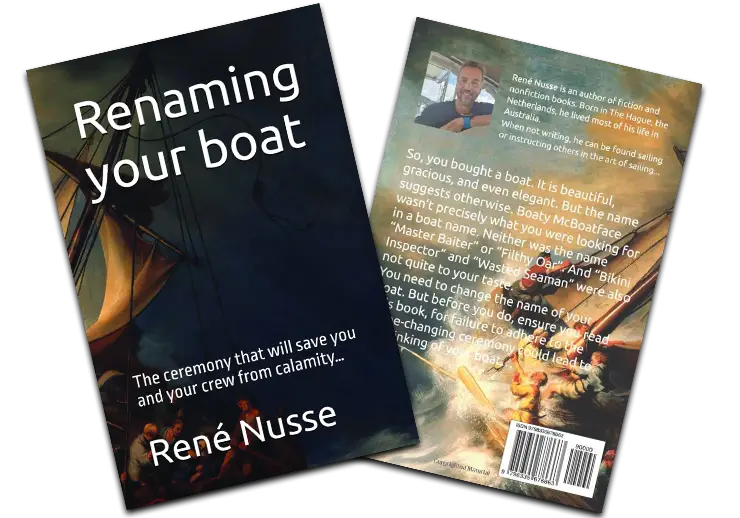Sailing advice for couples
Sailing as a couple can be a rewarding and bonding experience, but it requires good communication, planning, patience and understanding of each other’s strengths. Here are some key tips:
1. Clear Communication
- Discuss Expectations: Before setting sail (or buying a boat), outline your sailing goals and aspirations. Is this a relaxing pastime or more of an adventure? The journey itself may motivate one, whereas the other may focus on the destination. Do you want to focus on learning new skills or enjoy the experience? Although not essential, it helps if you both look for similar outcomes…
- Hand Signals or Short Phrases: Agree on simple hand signals or short phrases for when quick action is needed, especially when docking or anchoring, where precise communication is crucial. If you have a larger yacht, consider investing in a simple walkie-talkie, which will reduce the shouting and frustration that often follow when you can’t hear instructions during anchoring or picking up a mooring buoy.
2. Define Roles
- Know Each Other’s Strengths: One person may be better at navigation, while the other might have a knack for handling the sails. Split roles based on strengths and switch when comfortable.
- Avoid Stereotypes: Be mindful not to automatically fall into traditional gender roles. Both should learn all tasks, like steering, trimming sails, anchoring, etc. If for no other reason, both should be able to handle the boat independently in case of an MOB.
3. Teamwork & Patience
- Support Each Other: Patience is key in stressful situations. Mistakes happen, and frustration can arise, but staying calm and encouraging each other helps in tricky moments like docking or handling rough weather.
- Take Breaks: Sailing can be tiring, especially on longer voyages. Ensure both of you get breaks, even short ones, to avoid fatigue and to stay alert.
4. Safety First
- Know Safety Protocols: Both should know basic safety protocols, including handling emergencies like man-overboard situations, storm handling, or medical incidents.
- Wear Life Jackets: Always wear life jackets, especially in difficult weather or unfamiliar waters.
- Emergency Plan: Make sure you both know how to use the radio, fire extinguishers, and emergency equipment.
- Let each other know what you are up to: There is nothing more unsettling than looking up the companionway to see no one in the cockpit. Tell your partner where you are and where you are going, specifically if the weather is a bit narky.
5. Stay Organised
- Pre-Trip Preparation: Ensure both partners are familiar with the boat’s layout and where essential items (like life jackets, fire extinguishers, grab bags, and emergency kits) are stored. It pays to prepare a safety brief and present it to each other at regular intervals.
- Stock Supplies Together: Keeping well-stocked provisions like food, water, and medical supplies keeps stress levels down and ensures you’re both prepared for any situation.
6. Learning Together
- Take Classes: If one of you is more experienced than the other, consider taking a sailing class together. It builds both confidence and trust.
- Build Skills Gradually: If one partner is newer to sailing, start with shorter trips and gradually build up to longer voyages. Don’t start with an ocean crossing if your partner has never sailed before. Your adventure will come to an abrupt end.
7. Stay Flexible
- Weather and Conditions: Plans might change due to weather or boat issues. Be flexible, and don’t push yourself too hard if conditions aren’t favourable.
- Listen to Each Other: If one of you is uncomfortable with something, such as rough seas or an unfamiliar manoeuvre, listen and reassess the situation.
8. Enjoy the Journey
- Create Special Moments: Plan fun or relaxing activities on the boat, like cooking a nice meal together, stargazing at night, or docking in a romantic bay.
- Relax Together: Take time to appreciate the quiet and peacefulness of the water, which can enhance the sense of togetherness and tranquillity.
9. Understand Personal Space
- Respect Alone Time: Being on a boat together doesn’t mean you need to be in constant conversation or interaction. It’s fine to have personal space, even on a small boat.
- Manage Conflicts: Small disagreements may arise, especially in tight quarters, but try to keep them short and settle them constructively.
10. Prepare for the Unexpected
- Backup Plans: Have backup plans in place, such as alternative ports or anchorages, in case of equipment failure, weather changes, or health issues.
By working together, communicating clearly, and preparing well, sailing can be a profoundly enriching experience for a couple.
4o

NAVIGATION RULES CLINIC + BASIC SAIL TRIM COURSE
These FREE online sailing lessons are a great refresher courses for EVERYONE.
Take these FREE courses now and check out how simple and easy it is to take a NauticEd online sailing course.Estimated time: 20 minutes each.
Author
-

Rene is a keelboat instructor and sailing coach in the Mandurah area WA. He is also the author of several books about sailing including "The Book of Maritime Idioms" and "Renaming your boat".
View all posts


